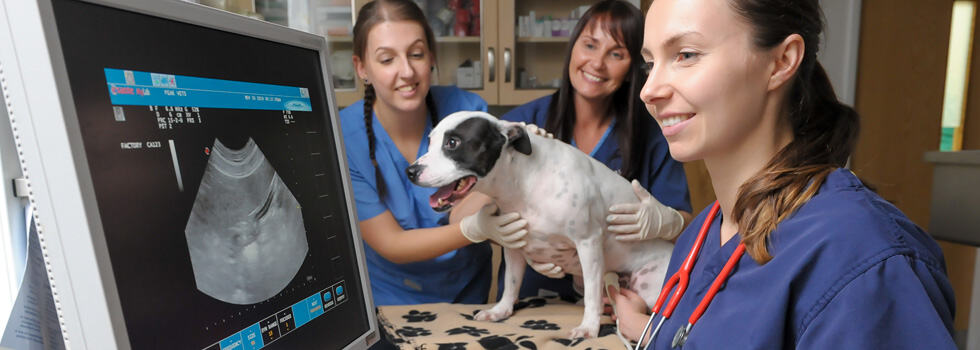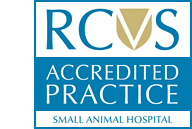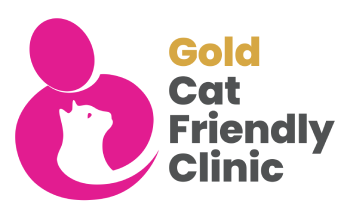At Peak Vets, we consider dog vaccines in Sheffield to be a crucial component of responsible pet care and a means of shielding your Dogs from diseases that can be extremely devastating but can be prevented. Dogs can contract several serious illnesses, but fortunately, vaccination campaigns and technological advancements have significantly decreased the number of instances.
Since we don't hear much about them, it is easy to think that they are no longer a threat to our Dogs. However, they are still a persistent risk, so the best way to keep your dog safe is to vaccinate them.
How do vaccines work?
Vaccines include virus and other infectious agent types that are safe (either dead or weakened). The immune system of a dog in Sheffield reacts to a vaccination by producing antibodies, which serve as a defensive measure.
These antibodies will shield the animal from contracting the sickness if it is later exposed to the real illness. According to your pet's lifestyle, risk factors, and the most recent recommendations, Peak Vets will suggest certain vaccinations. Vaccines of today protect against a number of illnesses with just one or two shots.
Thoughtfully, immunisations do not provide lifetime immunity, which is why routine booster shots for dogs in Sheffield are advised.
Your pet would also benefit greatly from a comprehensive health examination. To schedule an appointment, please contact us. We send out reminders for all immunisations.
Vaccinations For Your Dog in Sheffield
The major dog vaccines in Sheffield for puppies aid in overcoming the anti-body defences left by their moms and provide dependable protection from a young age.
In order to allow for an early socialisation plan, the first immunisation is often administered about 8 weeks old, and the second two to four weeks later (but no sooner than 10 weeks old). Your certificate of immunisation will be given to you at the second appointment.
Peak veterinary professionals advise obtaining annual booster shots to guarantee immunisations are current. Leptospirosis and kennel cough are often covered by annual boosters (which can be administered every six months); however, distemper, parvovirus, and canine hepatitis are typically required every three years. To ensure that a dog is as protected against infections as possible, a yearly vaccination would be necessary. As veterinarians, we would always advise against vaccinating dogs. In Sheffield and the rest of the UK, getting a dog vaccinated is not legally required, although it is strongly advised.
The team here at Peak Vets can provide the following dog vaccinations in Sheffield:
- Parvovirus
- Leptospirosis
- Distemper
- Canine Infectious Hepatitis
- Rabies
- Leishmaniasis
- Herpes vaccination
- Kennel Cough
To make sure the dog is healthy before the injection, a comprehensive health examination is scheduled for each dog receiving a vaccine in Sheffield. Please let our staff know if your dog is tense or worried so we may come up with a strategy to help your dog feel as less stressed as possible.
Book a vaccination appointment for your dog
Do dogs need to be vaccinated?
Vaccinations are essential for providing your dog with adequate protection from life-threatening and debilitating diseases. There is the option of Titre testing, which involves blood samples to determine your dog's immunity. Unfortunately, this is not always 100% reliable, is costly to perform and still means that leptospirosis needs to be vaccinated against. This is why we would recommend core vaccinations for your dog throughout their lives.
Is it OK to not vaccinate my dog?
As veterinary professionals, we would always recommend vaccinations; the risk is not worth taking when it comes to the harmful diseases that your dog could pick up whilst outdoors.
What vaccines do dogs legally need?
It is not a legal requirement to have a dog vaccinated, but it is highly advisable. Some kennels, dog trainers and daycares require vaccinations for all dogs to use their services. Insurance can also be invalidated if dogs are not vaccinated.
At what age do you stop vaccinating your dog?
Dogs require annual booster vaccines throughout their lives; this is to ensure maximum protection against life-threatening diseases. Our choice of vaccines is based on your dog's lifestyle as opposed to their age.
Can I vaccinate my dog myself?
Under UK law, only veterinary surgeons can prescribe medications; vaccinations fall into this category. Your vet is required to health assess a pet before prescribing and administering the vaccine. Like many drugs, vaccines can have mild side effects, which is why a health check prior is essential to ensure your pet will be fit and well after the vaccine is administered. Veterinary professionals are trained at administering these vaccines; this wouldn't be advised for a member of the public to administer themselves. Also, the vaccination bottles, needles and syringes require correct disposal. Some diseases such as diabetes require owners to inject their animal at home, but correct monitoring, training and equipment is essential.
If your dog is anxious or nervous, you can speak to the team at any time and we can make a plan to reduce as much stress as we can. For example, after a discussion between the owner and the team, some of our nervous dogs have a minimal health check and the vaccine may still be administered. This is carried out when an owner or we feel a health examination will be too stressful.
What vaccinations does my dog need?
Annual boosters usually cover leptospirosis and kennel cough (can be given every six months). However, distemper, parvovirus and canine hepatitis are usually needed every three years. Therefore, a dog would need a vaccine every year to have maximum protection against diseases.
Because of yearly vaccinations, this is why our health plans are popular – they break down these costs into monthly payments. The plan also covers various preventative treatments, including flea treatments, worming treatments and anal gland expressions - if you haven't already signed up - click here to find out more.







